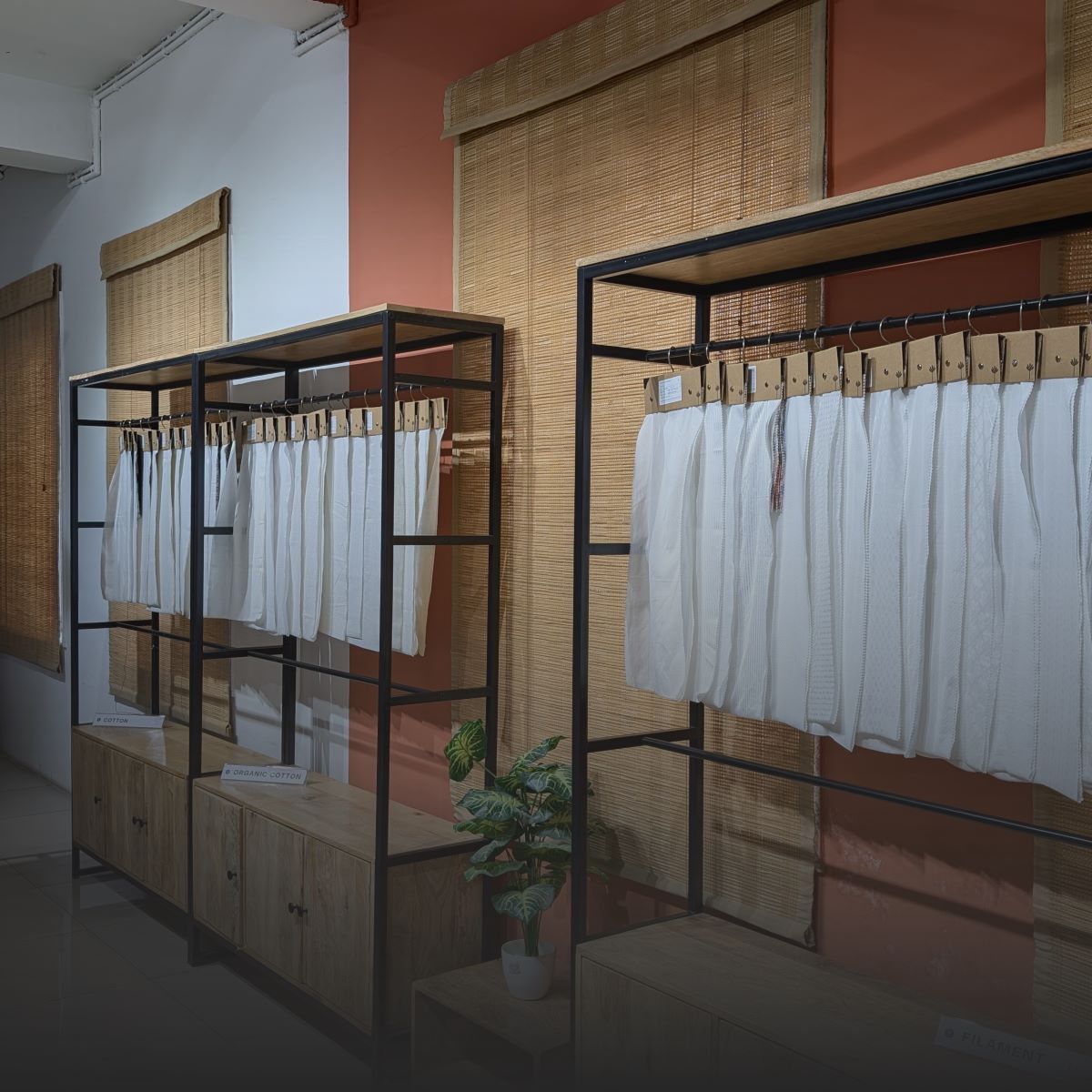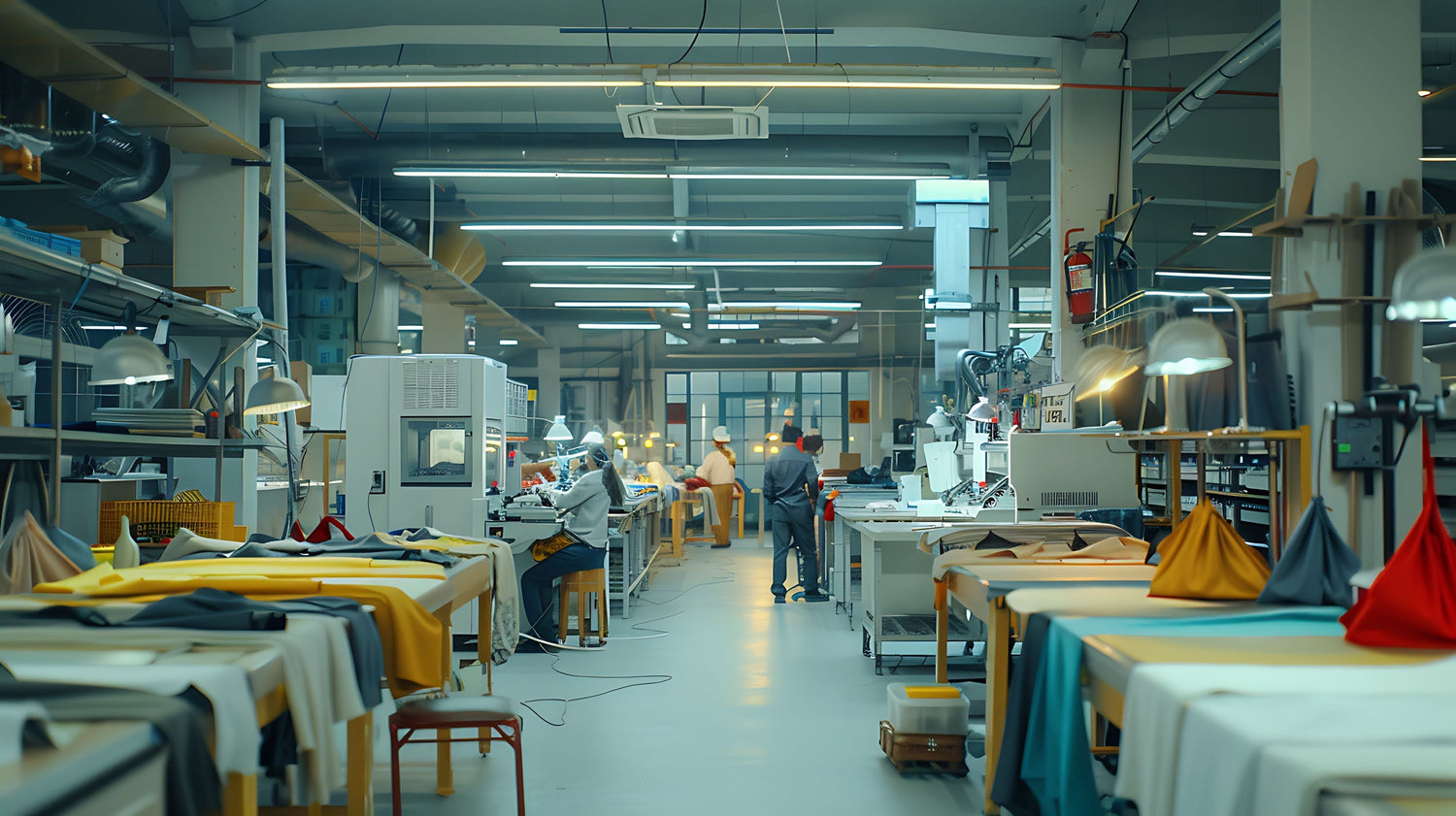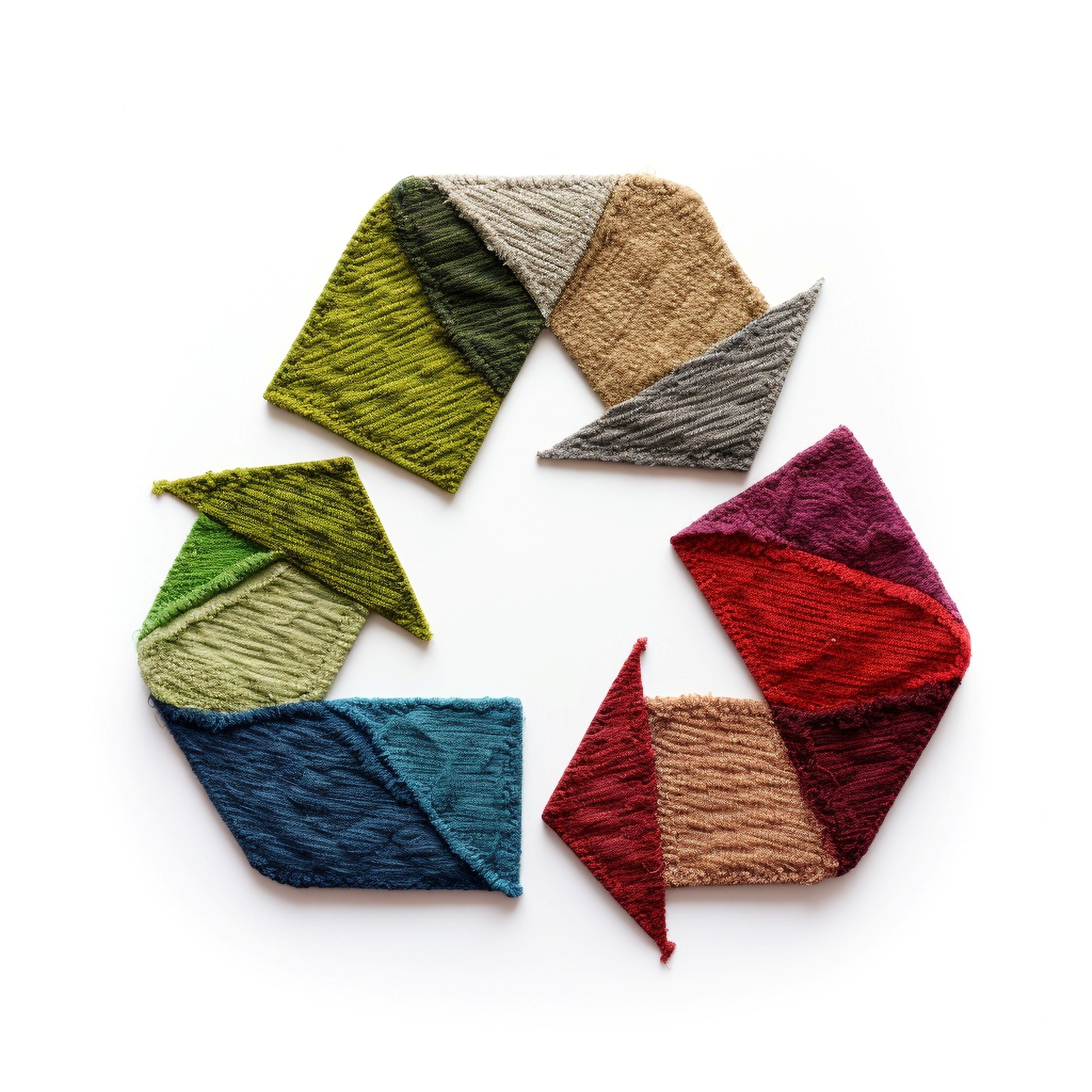Garment factories in the USA are under more and more pressure to follow a wide range of rules and standards as ethical sourcing, sustainability, and openness become important parts of modern fashion. Compliance is no longer a choice—it's a must for businesses. This includes following labour laws, environmental standards, safety guidelines, and ethical sourcing frameworks.
In 2025, these updated certifications are important to know whether you're starting up a clothing production unit in the USA or buying from a garment manufacturer in the USA. They ensure your credibility, legal safety, and readiness for the market.
Why Compliance Is Crucial for Apparel Production In The USA
Brands are under a lot of pressure these days from lawmakers, retailers, and customers who care about the environment. Compliance makes sure that things are legal, keeps shipments on time, and boosts trustworthiness in competitive sourcing ecosystems. It is very important for any USA clothing production company to follow the rules, so they don't get fined, have shipments rejected, or have to recall their products.
Since 2025, the CPSC, FTC, and EPA have become stricter with their rules, and big states like California and New York have passed laws that encourage sustainability. Following these rules will help Clothing Manufacturers USA do the following:
- Legal product entry into the US market.
- Avoidance of fines, shipment holds or recalls.
- Alignment with buyer expectations and ESG goals.
Key Compliance Laws, Certifications & Documentation Required for Garment Factories in the USA (2025)

In 2025, factories must follow severe federal and state safety, chemical, labelling, sustainability, and ethical sourcing criteria to produce or export clothing to the US CPSIA, FTC, PFAS, and EPR laws must be followed by US textile manufacturers. Testing, documentation, and transparency are required, along with GOTS, OEKO-TEX, and WRAP certifications. These rules guarantee legality, retail relationships, and worldwide competitiveness. Learn about USA Compliance & Certifications Needed for Garment Factories in 2025:
1. Federal Laws Every Garment Factory Must Follow
The federal government of the United States has strict rules about consumer safety that control things like fibre content, flammability, and the presence of dangerous chemicals. The Consumer Product Safety Improvement Act (CPSIA) says that clothing for kids must follow certain rules, like not using lead or phthalates and having to be tested by a third-party lab.
The Textile Fibre Products Identification Act makes sure that garments have proper fibre labels and origin statements. The Flammable Fabrics Act (FFA) makes sure that clothes meet flammability standards set out in 16 CFR 1610, 1615, and 1616. These rules apply to any USA clothing production company that wants to ship goods within the country or to other countries.
2. FTC & Customs Regulations: Labeling and Trade Laws
The Federal Trade Commission (FTC) has rules about how to name textiles, and Customs and Border Protection (CBP) requires that all goods sold in the US follow these rules. Labels with fiber content information, care directions, and truly Made in USA claims are regulated by the FTC. CBP, on the other hand, makes sure that products are correctly classified under the Harmonised Tariff Schedule (HTS) and have country of origin markings.
This has a direct effect on the operations of fabric suppliers who deal with foreign trade or large shipments, making being ready for customs a mandatory compliance factor.
3. EPA & Chemical Safety Regulations
The Environmental Protection Agency (EPA) is in charge of following the Toxic Substances Control Act (TSCA). TSCA now has limits on heavy metals, formaldehyde, and PFAS (per and poly-fluoroalkyl substances) that are only found in fabrics. By 2026, all textiles in some places, like California, Maine, and New York, will no longer contain PFAS. What this means is that people must really follow the rules.
For any USA-based garment factory, making sure they know about new dangerous chemicals and use methods that the EPA approves is important to make sure they can stay in business.
4. State-Level Laws: Sustainability & Due Diligence
Extended Producer Responsibility (EPR) laws are being passed in states like California, New York, Massachusetts, and Washington. These laws require brands to recycle textile trash and file reports. These states are also passing the Supply Chain Transparency Acts, which force companies to report every year on how they get their materials, how they affect the environment, and what chemicals they use.
These laws make it harder for clothing manufacturers in the USA to do business legally. If they don't follow the rules, they can be fined up to $15,000 per day or 2% of their global income.

5. Essential Certifications for Factory Compliance
Textile factories are now required by federal and state law to get globally recognized certifications, which include:
- GOTS (Global Organic Textile Standard): Verifies organic content and sustainable processing.
- OEKO-TEX® Standard 100: Confirms fabric safety and chemical compliance.
- Bluesign®: Assures sustainable chemical management.
- Cradle to Cradle: Recognizes product circularity and design for recyclability.
- Fair Wear Foundation / SA8000 / WRAP: Ensure labour rights and ethical practices.
- Higg Index: Measures environmental and social factory performance.
These are necessary for any wholesale clothing manufacturer USA that wants to sell to people who care about ESG-friendly sources.
6. Raw Material & Organic Certification
Certified content must be obtained by factories that deal in organic mixes or support sustainability. These can be obtained through the Organic Content Standard (OCS) or USDA Organic for raw fibers like cotton or hemp. These guidelines make sure that claims about the supply chain are true. They are especially important for sustainable fabric suppliers who work with eco-friendly brands or state-funded programs.
7. Testing, Auditing & Lab Certifications
CPSC and CPSIA rules say that a third-party lab must test products for flammability, lead content, pH levels, and colourfastness. When factories make 'wholesale fabric by the yard', they need to show either General Certificates of Conformity (GCC) or Children's Product Certificates (CPC), based on the type of customer they want to sell to.
When brands work with bulk fabric manufacturers, they need to make sure that all test results come from labs that are approved by the CPSC, such as Intertek, QIMA, or Bureau Veritas.
8. Documentation & Recordkeeping
Factories need to keep accurate and complete records of everything they do, such as audit reports, chemical safety data sheets (SDS), flammability test results, and records of workplace inspections. This kind of paperwork is needed by a private label clothing manufacturer USA, not only when they start working with big stores but also during state checks and customs clearance.
What's at Risk Without Compliance?

Not following the rules has serious effects. Customs holds, product bans, losing big customers, or being kicked out of stores like Walmart and Amazon are just the beginning. Companies that break EPR or labour laws can be fined up to 2% of global revenue by states like California. One missing paper can mean the end of long-term contracts for fabric suppliers who work with US clients.
Fabriclore: Certified Sourcing & Compliant Garment Production
Fabriclore makes sure that all of the vendors we work with are licensed, up to code, and ready for an audit. We can help you with GOTS, OEKO-TEX, WRAP, and ISO-certified production sets whether you're looking for wholesale fabric online, looking into dyeing options, or looking for low MOQ clothing manufacturer USA partners to help you grow your brand. Our fabrics have been checked for CPSIA and FFA, and they also meet all FTC and CBP standards for both export and sale.
👉 Explore our certified sourcing network: https://fabriclore.com
Conclusion
The year 2025 will be known as a turning point for changing rules in the textile industry. With laws like CPSIA and FFA at the federal level and bans on EPR and PFAS at the state level, clothing companies have to be more open, recognized, and focused on sustainability than ever before. It is now important to work with certified custom clothing manufacturers USA and verified USA garment factory certifications. This is true not only for legal reasons but also for brand loyalty and long-term competitiveness.
FAQ’s
1. What certifications are required for a garment manufacturer to sell in the USA in 2025?
In 2025, companies that want to sell clothes in the US will have to get certifications like GOTS for organic textiles, OEKO-TEX® Standard 100 for chemical safety, WRAP or SA8000 for fair labour practices, and CPSIA compliance for children's wear. These certificates are necessary for any custom clothing manufacturers USA that want to sell their products in the US or around the world. They make sure that the products are legal, that stores will sell them, and that customers will trust them.
2. How can clothing manufacturers in the USA comply with PFAS bans and chemical safety laws?
When making clothes in the US, companies must follow the EPA's TSCA rules and the upcoming PFAS bans in states like California, Maine, and New York by not using any restricted chemicals. Chemical safety laws will always be followed if you use Bluesign®-approved chemical systems, check your supply lines regularly, and work with certified sustainable fabric suppliers.
3. What are the labelling and documentation rules for fabric and apparel imports to the USA?
All clothes made in the US or imported must show the correct fiber content, place of origin, and care instructions according to FTC and CBP regulations. Along with lab results, factories must also keep General Certificates of Conformity (GCC) or Children's Product Certificates (CPC). These rules are very important for clothes brands and companies that sell wholesale fabric by the yard that want to sell in stores or online.
4. What are Extended Producer Responsibility (EPR) laws, and how do they affect garment factories?
EPR rules say that clothing brands and manufacturers need to take care of textile waste and recycle it. Public reports must be made on the effects on the climate, the use of chemicals, and the lifecycle of a product in states like California and New York. If a USA-based garment factory doesn't follow EPR rules, they could face daily fines or penalties of up to 2% of their global revenue. This makes transparent sourcing and circular design important for business.
5. Why should brands work with certified low MOQ clothing manufacturers in the USA?
Working with an approved low MOQ clothing manufacturer USA (GOTS, OEKO-TEX, WRAP) helps small and medium-sized fashion brands grow legally and ethically. It lowers the hurdles to entry, speeds up compliance, and makes sure that retailers and exporters can get to their products faster. Working with legal partners like Fabriclore lowers legal risk and improves the long-term viability of the supply chain, especially in 2025.




